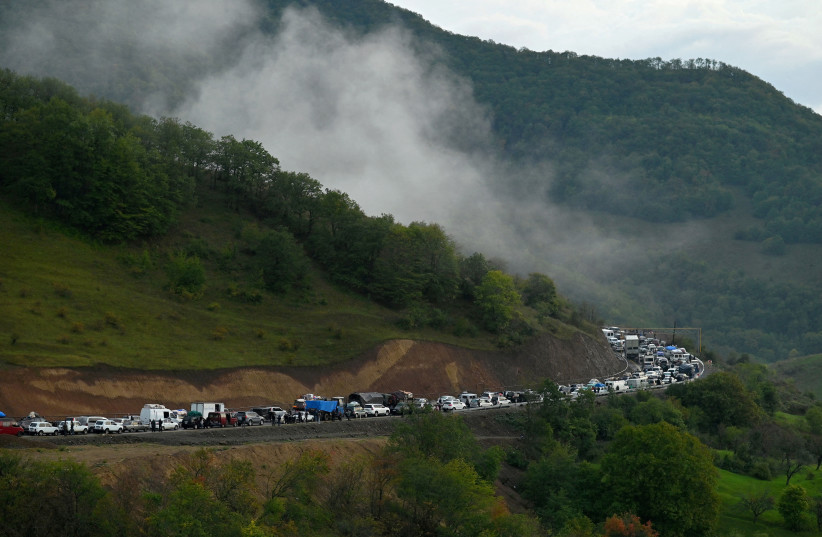More than 100,000 refugees have now arrived in Armenia from Nagorno-Karabakh, the head of the UN Refugee Agency (UNHCR) said late on Friday.
"Many are hungry, exhausted and need immediate assistance," Commissioner of the United Nations High Commissioner for Refugees Filippo Grandi said on social media.
"UNHCR and other humanitarian partners are stepping up their support to the Armenian authorities, but international help is very urgently required," Grandi added.
About 75% of Nagorno-Karabakh's population has left since Azerbaijan's takeover - all within a week.
Tens of thousands of ethnic Armenians fled out of Nagorno-Karabakh after Azerbaijan's military operation was deemed a success last week with the nation gaining control over disputed territory, according to US media. This leads to fears that the entirety of the population will depart from the region in just a matter of days due to what Armenia has called "ethnic cleansing."

Armenian refugees have fled citing unwillingness to live under Azerbaijan's rule, for fears that they will soon face persecution at the hands of officials on local and national levels.
US media reported that only a single road has been opened out of the area.
Armenia's prime minister Nikol Pashinyan said in a televised government meeting on Thursday that he expects more Armenians to leave in the coming days.
Western countries like the United States have expressed concern about the displacement of the Armenian population from the enclave, urging Azerbaijan to allow international access to the area.
Life behind a blockade
"This is a situation where they've lived under nine months of blockade," Kavita Belani, UNHCR representative in Armenia, told a UN press briefing. "And when they come in, they're full of anxiety, they're scared, they're frightened and they want answers."
"We are ready to cope with up to 120,000 people. It's very hard to predict how many will come at this juncture," she added in response to a question about refugee numbers. Initial planning figures were for between 70-90,000 refugees but that needs updating, she added.
Nearly a third of the refugees are children, another UN official told the briefing.
"The major concern for us is that many of them have been separated from their family," said Regina De Dominicis, UNICEF regional director.
International Federation of Red Cross and Red Crescent Societies representative Hicham Diab said there was a massive need for mental health support for refugees.
"The situation often involves families arriving with children so weak that they have fainted in their parents' arms," he said.
Carlos Morazzani, operations manager of the International Committee of the Red Cross, said it had transferred around 200 bodies out of Karabakh on Thursday - victims of a fuel depot explosion and recent fighting.
Going forward, it will be focusing on helping those left behind with basic food and hygiene items.
"We had been planning for the evacuation to be a longer process," he said. "The evacuations this week have gone very fast, very high numbers of people, but as a result of that many people become stranded."
